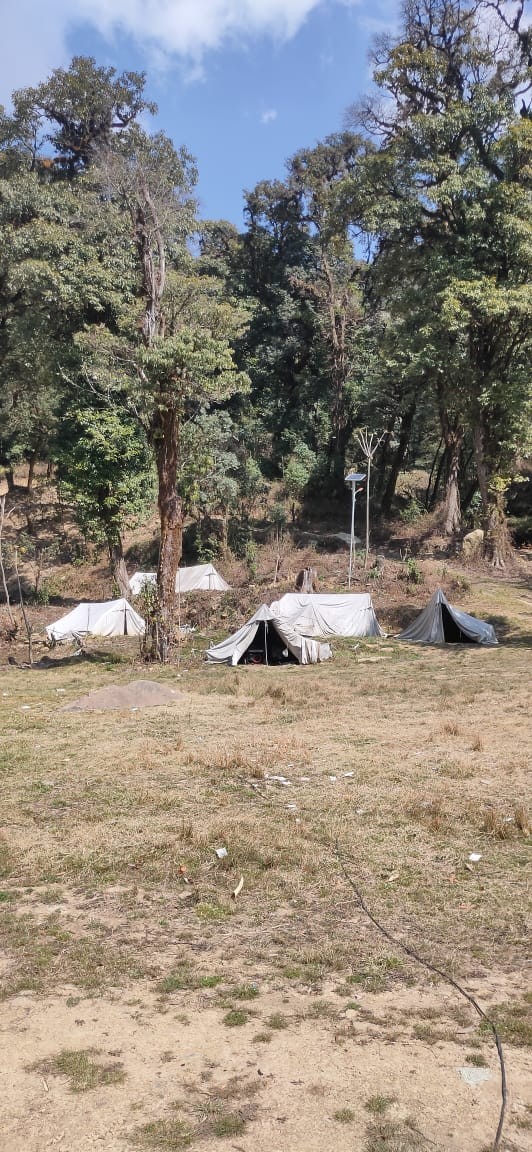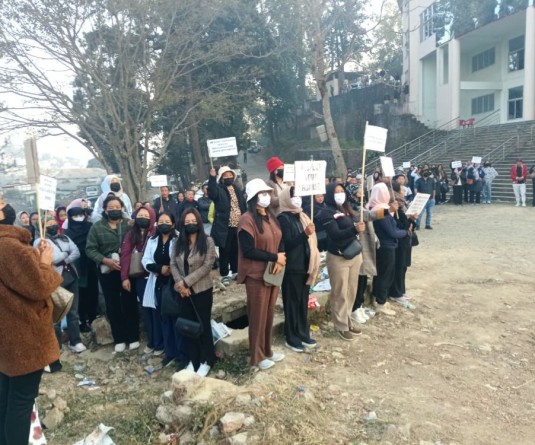
Morung Express News
Kohima | February 27
With the ongoing prolonged dispute of traditional land between Nagaland and Manipur, the State Government is urged to immediately intervene to protect the Kezoltsa from “exploitation” by deploying State’s agencies to protect the forest lands.
This appeal was made by MLA Kevipodi Sophie today at the ongoing 4th session of the 14th Nagaland Legislative Assembly during matters of urgent public importance.
Sophie in a statement said the ongoing dispute over the Kezoltsa between Maram, Mao, and Southern Angami communities, has persisted for several decades, and continues to remain a ‘highly sensitive and contentious issue.’
Highlighting the chronology of the dispute, he said Kezoltsa is a huge biodiversity resource and the virgin forest had been under the traditional ownership and protection of the Southern Angamis since time immemorial.
However, since much theft of forest resources and destruction of the forest were taking place, the Southern Angamis constructed a rest house to monitor, protect and preserve the flora and fauna of the Kezoltsa, which was destroyed by volunteers from Songsong village of Manipur.
This led to the landmark judgement on February 14, 2001 by the Tenyimi Central Union (TCU) now renamed as Tenyimi People's Organization (TPO) wherein "The destroyed rest house should be re-constructed to its original shape by Songsong Village within 20 days' and the order was implemented as directed by the then TCU.
He also accused the Manipur government who under the patronage of Mao Council in pursuance of a Memorandum dated 23rdApril 2015, had illegally encroached and forcefully occupied Kezoltsa and deployed armed security forces and carried out massive permanent development activities, extracting and looting timber, and plundering all resources within Kezoltsa which falls under the Southern Angami traditional territory that has been preserved and protected by our ancestors since time immemorial.
He further stated that following the December 29, 2020 inferno at Dzükou, on the pretext of dousing the fire, the Mao Council together with the Government of Manipur and its security personnel took advantage of the circumstances and constructed roads, installed electrification and built permanent Security Station by way of forceful occupation and imposition of CrPC 144.
Subsequently, in a meeting with the Manipur Chief Minister, N. Biren Singh on March 13, 2021 by the TPO and Board of Arbitrators (BOA), the former has directed his Minister L Dikho to immediately cease work and to withdraw all security personnel so as to allow TPO and BOA to adjudicate the matter on customary laws and practices.
The tussle continues between the two entities with Manipur government imposing CrPC 144 since February 2021. “The TPO court's verdict of 19th December 2022 was rejected by all the contesting parties as it failed to deliver justice based on traditional and customary practices” stated Sophie.
The appeal made the Chief Minister of Nagaland to Manipur on January 8, 2021 to resolve the issue through amicable dialog under Tenyimi customary law and to identify genuine landowners, was met with silence.
“The issue is a matter of concern for the people as our ancestral and traditional lands lie across the arbitrary drawn imaginary line of the Nagaland-Manipur political state boundary, which was drawn without the consent of the local dwellers” asserted Sophie.
While stating that on the need to ensure that the rights and freedoms of the people are respected and protected in accordance with the law, Sophie said the Angamis under any circumstances cannot part with its traditional land and this assertion has no conflict with the existing political state boundary.
To this end, he asserted that it is high time that the State Government intervenes to protect the rights and ownership of the people, making it lawfully acceptable and recognized by both the State Governments and the Civil Societies.
The Nagaland State Government, he stated must find a means to facilitate and resolve the issue with due recognition of genuine traditional owners and through the employment of customary and traditional laws prevailing.






